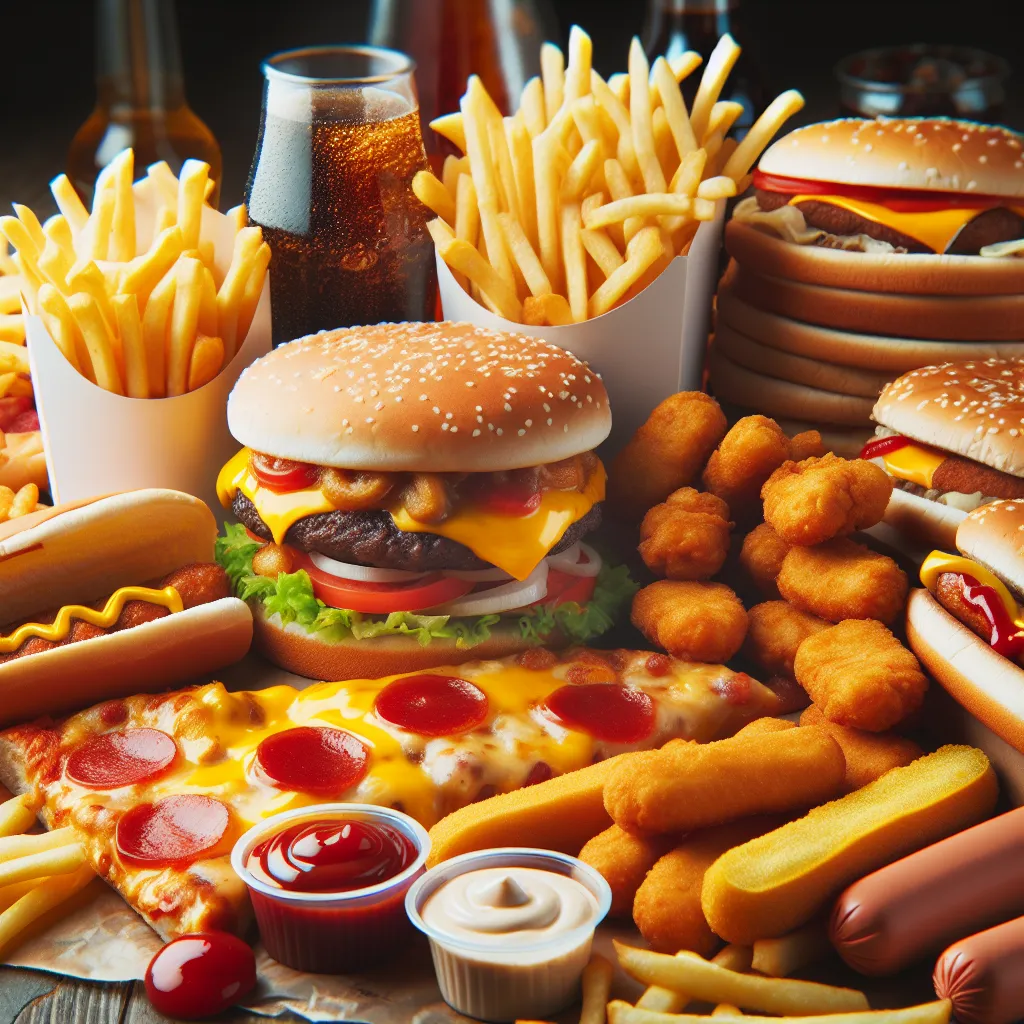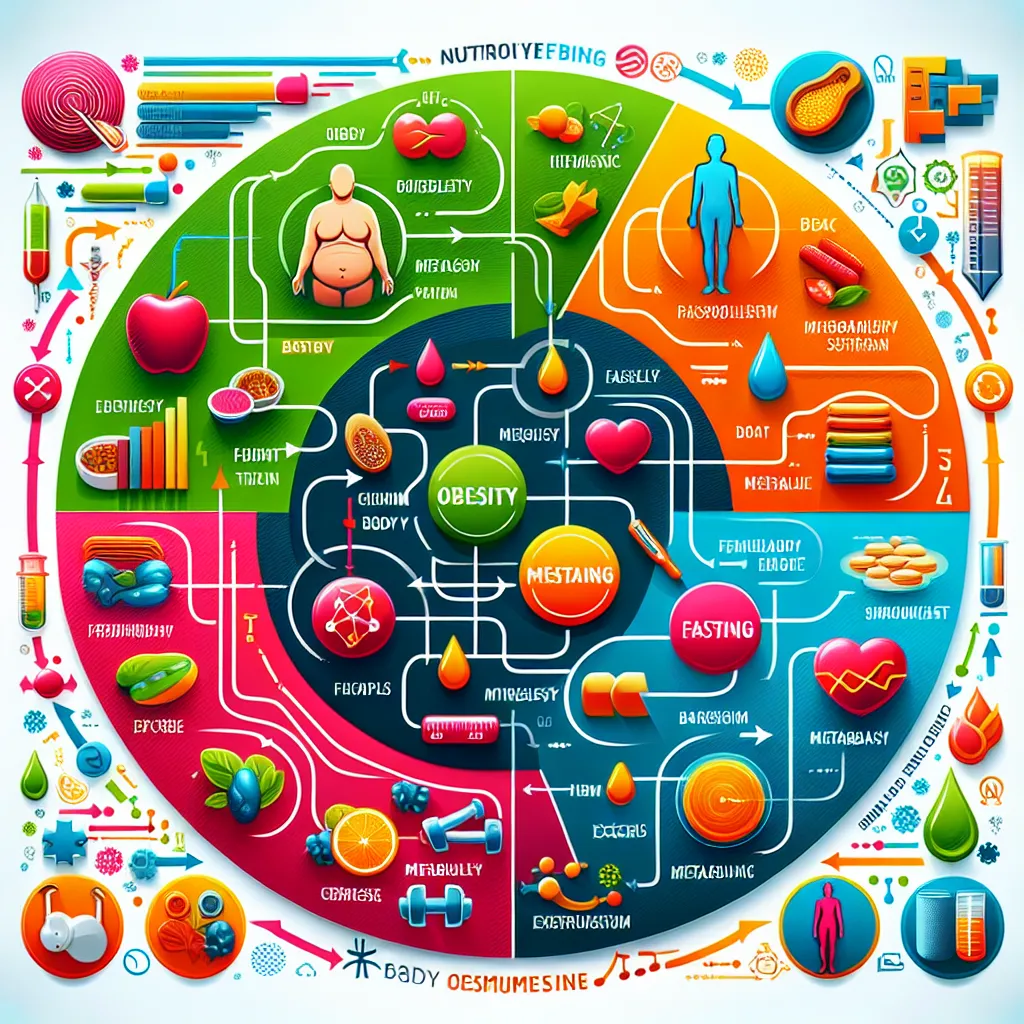Ask AI on The Internet
Question: How do people end up addicted to food and become obese
Food addiction and obesity are complex issues influenced by a variety of factors including biological, psychological, social, and environmental elements. Here’s a detailed look into how people may end up addicted to food and become obese: 1. **Biological Factors:** - **Genetics:** Some people have a genetic predisposition to obesity. Genes can influence how the body stores fat and how it processes food. - **Neurochemistry:** Certain foods, especially those high in sugar, fat, and salt, can trigger the release of dopamine in the brain, which is associated with pleasure and reward. This can lead to a cycle of craving and consuming these foods to regain those pleasurable feelings. - **Hormonal Imbalances:** Hormones such as leptin and ghrelin, which regulate hunger and appetite, can become imbalanced. For example, leptin resistance can make it difficult for the brain to recognize when one is full. 2. **Psychological Factors:** - **Emotional Eating:** Many people use food as a coping mechanism to deal with stress, anxiety, depression, or other emotional challenges. This can create a dependency on food for emotional relief. - **Behavioral Patterns:** Habits formed over time, such as snacking late at night or eating in front of the TV, can contribute to overeating and unhealthy food choices. 3. **Social Factors:** - **Cultural Norms:** In some societies, there is an abundant availability of high-calorie, low-nutrient foods and a culture of eating large portions, which can lead to overeating. - **Social Influences:** Family, friends, and social events often revolve around food, and social pressures can lead to overeating or choosing unhealthy options. - **Socioeconomic Status:** Lower-income individuals may have limited access to healthy foods, and healthy options can be more expensive and less convenient than processed, calorie-dense foods. 4. **Environmental Factors:** - **Food Environment:** The omnipresence of fast food restaurants, advertisements for unhealthy foods, and easy access to high-calorie snacks contribute to overconsumption. - **Sedentary Lifestyle:** Modern lifestyles often involve prolonged periods of sitting, reduced physical activity, and increased screen time, all of which can contribute to weight gain. 5. **Addictive Properties of Certain Foods:** - **Highly Processed Foods:** Foods high in sugar, fat, and salt can be particularly addictive. They are designed to be hyper-palatable, making it easy to overeat. - **Reward System:** Frequent consumption of these foods can hijack the brain's reward system, similar to how addictive substances work, leading to compulsive eating behaviors. 6. **Stress and Sleep:** - **Chronic Stress:** Stress increases cortisol levels, which can lead to increased appetite, cravings for high-fat, high-sugar foods, and weight gain. - **Sleep Deprivation:** Lack of sleep disrupts hormones that regulate hunger and appetite, leading to increased cravings and poor food choices. 7. **Psychiatric Comorbidities:** - **Mental Health Disorders:** Conditions like depression, anxiety, and binge-eating disorder can lead to overeating and obesity. **Preventing and Addressing Food Addiction and Obesity:** - **Healthy Eating Habits:** Focusing on whole foods, balanced meals, and mindful eating practices. - **Regular Physical Activity:** Incorporating exercise into daily routines can help manage weight and improve overall health. - **Behavioral Therapy:** Cognitive-behavioral therapy (CBT) and other forms of counseling can help address underlying emotional and psychological issues related to food addiction. - **Medical Interventions:** In some cases, medications or surgical interventions may be necessary. - **Support Systems:** Engaging with support groups, dietitians, and healthcare providers can provide the necessary support and guidance. Addressing food addiction and obesity often requires a multi-faceted approach, tailored to the individual’s specific circumstances and needs.
Think your answer is better than the AI's? Post it below.
Other Most Relevant Posts:
 1. Carbohydrates - T
2. Dietary fiber - A
3. Fats - G
4. Fat-soluble vitamins - P
5. Glucose - K
6. Minerals - Y
7. Nutrients - V
8. Nutrition - OO
9. Protein - TT
10. Saturated fats - SS
11. Trans fa
1. Carbohydrates - T
2. Dietary fiber - A
3. Fats - G
4. Fat-soluble vitamins - P
5. Glucose - K
6. Minerals - Y
7. Nutrients - V
8. Nutrition - OO
9. Protein - TT
10. Saturated fats - SS
11. Trans fa
Question Tags
If you want your question answered by an AI, click here.






Post your own comment: